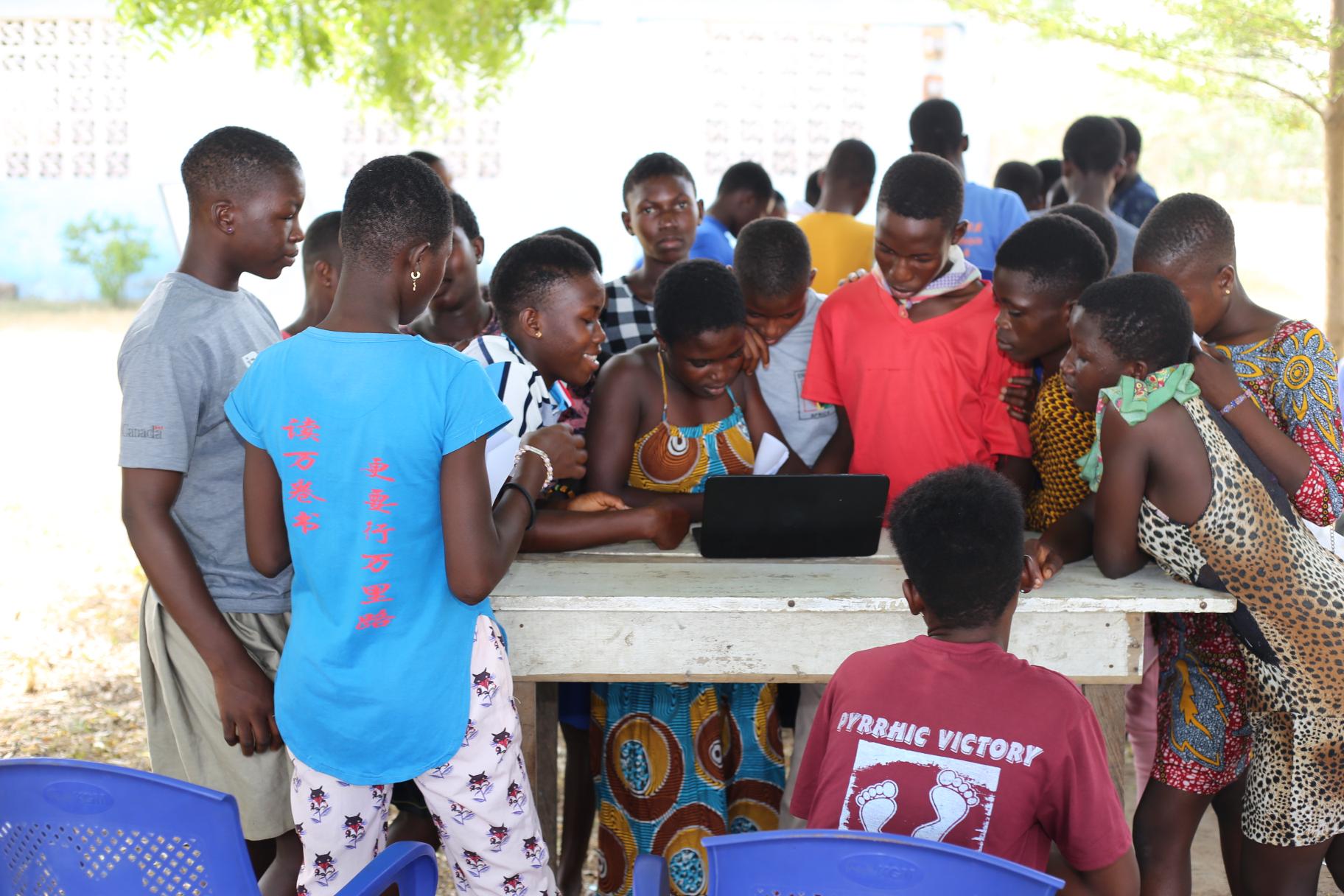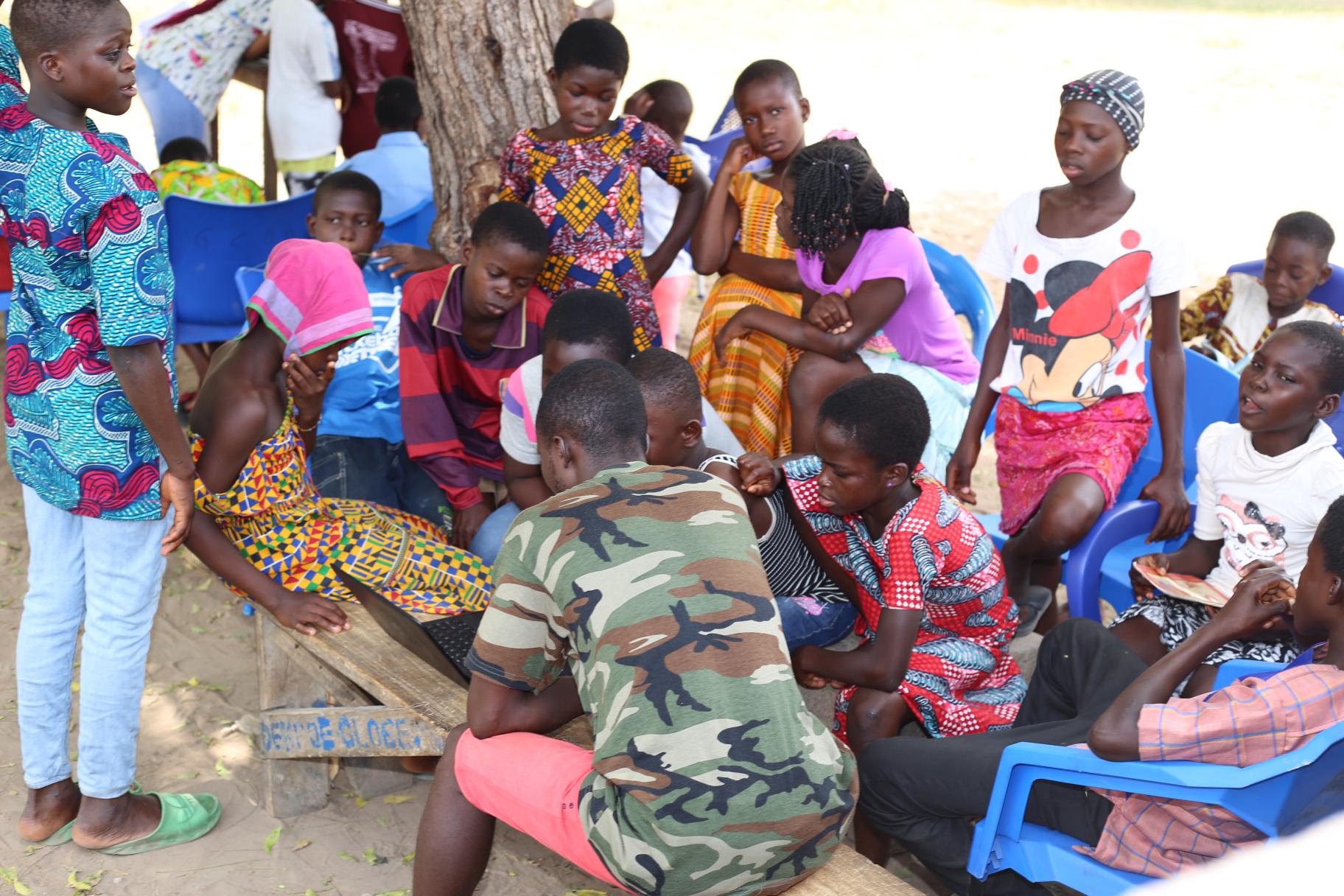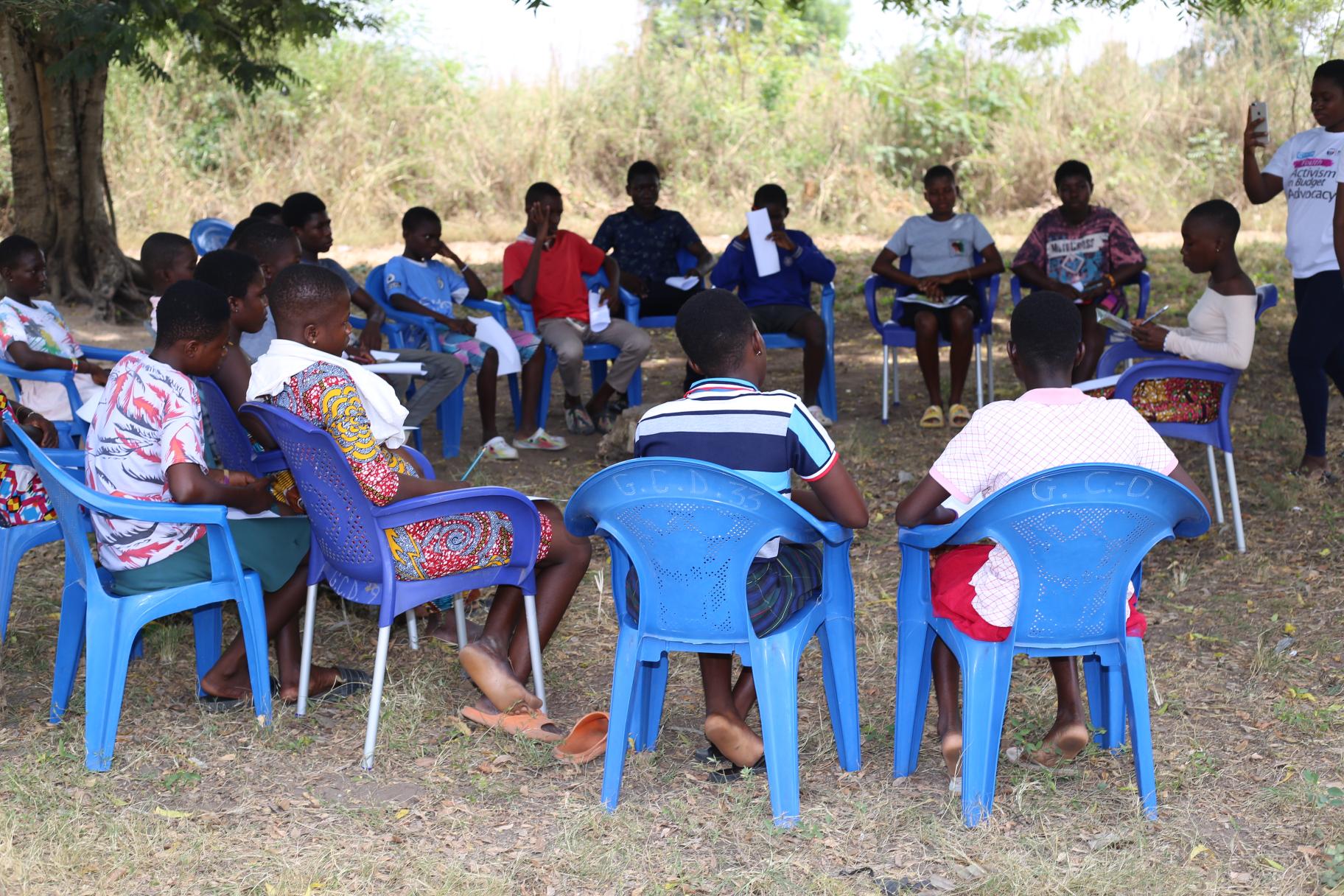Following the closure of learning institutions in Ghana due to COVID-19, the education sector experienced severe disruption as several learners stayed home for an unspecified period. The pandemic created significant challenges for parents to finance school-related expenses, leading to increased school dropouts especially among girls. Many of these girls were exposed to risky sexual behaviors, resulting in higher risks of unwanted pregnancies, HIV/AIDS, and gender-based violence. In response, GRAY Network launched the Community Literacy Program to provide a safe, accessible learning platform for young people in hard-to-reach communities who had dropped out of school. The program aimed to improve academic skills, bridge the learning gap caused by the pandemic, and support re-enrollment into formal education.



Our project worked across 5 communities in Central Tongu District and Afadzato South of the Volta Region, focusing on:
- Established community-based literacy hubs for dropouts and teenage mothers
- Delivered targeted training in basic literacy, numeracy, and ICT skills.
- Distributed essential learning materials to enable consistent participation.
- Community-Based Learning Sessions
- Organized regular literacy and numeracy classes for out-of-school youth, including teenage mothers.
- Integrated basic ICT training to enhance digital literacy.
- Educational Resource Distribution
- Supplied exercise books, pens, math sets, school bags, and other learning materials to support learners.
- Mentorship & Counselling
- Provided mentorship programs to motivate learners to return to formal education.
- Conducted awareness sessions on the dangers of early pregnancy and risky behavior.
- Engaged parents, community leaders, and educators to support retention and re-enrollment
- Children & adolescent girls: 673
- Young women: 317
- Children & adolescent boys: 110
- Young men: 351
Total reached: 1,451 beneficiaries
Additionally, 980 learners received educational support materials, and 24 school dropouts and teenage mothers were successfully re-enrolled in school. Parents, teachers, and community leaders were also directly engaged in awareness sessions.
- Improved literacy, numeracy, and ICT skills for 1,451 vulnerable youth.
- 24 dropouts and teenage mothers returned to school, continuing their education.
- Enhanced parental and community support for girls’ and youth education.
- Reduced vulnerability of young people to exploitation, early pregnancy, and school dropout.
- Strengthened awareness on the importance of education post-COVID-19.
The project not only addressed the immediate learning gap but also created life-changing opportunities for vulnerable youth. Many participants reported increased self-confidence, improved academic performance, and renewed hope for their future. Parents and community leaders also expressed greater commitment to supporting children’s education, ensuring sustainability beyond the program’s timeline.

